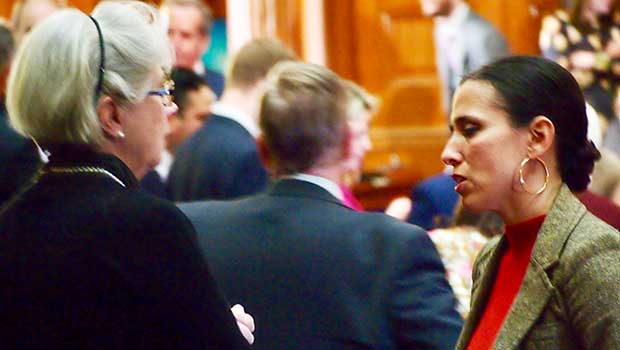Legislators advance school funding bill
Commission study finds outdated fixed costs in budget calculations

For decades, Massachusetts policymakers have tried to address the achievement gap between low and high-income districts by desegregating public schools, implementing the 1993 Education Reform Act. Today, legislators say the education funding formula within the 1993 act should be updated to finally close this gap.
Although the foundation budget in the 1993 Education Reform Act was intended to ensure every student in the state would receive a quality education by reimbursing local school districts, the bipartisan Foundation Budget Review Commission found the actual costs of employee health insurance and special education services have surpassed the assumptions built into the current budget formula.
Due to rising fixed costs and the actual resources needed to close opportunity and achievement gaps for low-income students and English language learners, the commission says the Commonwealth underestimates the cost of education by $1–$2 billion every year.
A new bill, An Act to Modernize the Foundation Budget for the 21st Century, (S.223) filed by Sen. Sonia Chang-Díaz, would implement recommendations made by the Foundation Budget Review Commission in 2015 to update the education formula. Last week, the bill was reported favorably by House and Senate members on the Joint Committee on Education.
“Our schools have been facing cuts for years — and it’s hurting our kids, our communities and our economy,” said Chang-Díaz, who also is Senate Chair of the education committee. “This is the kind of serious, generational investment we need right now, and I look forward to continue working with my colleagues in the House and Senate to get this bipartisan bill to the finish line.”
In a phone interview with the Banner, Alice Peisch, House chair of the Joint Committee on Education, said, “The single biggest items the commission found that the foundation budget underfunded were [school] employee benefits, specifically health insurance.”
She continued, “And as a result, in districts that do not have the capacity to spend more than the foundation budget provides, they are having to spend money on health insurance because it’s mandated for the employees, at the expense of more direct student service programs.”
Those direct student service programs include special education, which Peisch said the commission found a “slight underestimate of the number of students that receive special education in district schools.”
The commission also found a gap between what the budget provides and what school districts actually pay for students with severe special needs who are placed in out-of-district programs.
Peisch told the Banner that the budget review commission estimated that it would cost the state between $480 million and $500 million for the increase in funds that would result from the new budget formula.
Timetable and funding
Peisch said the timetable in which the Legislature might establish the bill’s recommendations would be dependent on available revenues.
“I know that many people advocating for the Fair Share Amendment would say well, if that passes, then there would be the revenues that you would need to fully fund these recommendations,” she said when asked about the proposed constitutional amendment to raise the tax rate on income over $1 million, which would add an estimated $2 billion for education and transportation.
Peisch added, “There are others who think there may be other sources of revenue or that we should prioritize this over the other things we currently fund, so that’s a matter of opinion.”
The Foundation Budget Review Commission published their recommendations in a study in 2015, which reports the need for increased funding for low-income students, English language learners and special education students.
To calculate funding for special education students, the current formula uses an assumed enrollment rate that the commission found is 1 percent lower than the actual enrollment rate, so they propose to increase it by that 1 percent.
Funding for health insurance would be based on the average rate charged by the Group Insurance Commission, which the commission says is based on actual health care costs.
For low-income students in the Commonwealth, the current budget formula adds an extra increment of funding for each student from a low-income family, but the new formula would add those increments based on the concentration of poverty in each district the student’s school is in. The budget review commission found that in districts with higher concentrations of poverty, each individual low-income student is actually more expensive than a low-income student from a district with a lower concentration of poverty.
In other words, the higher concentration of poverty a district has, the more funds and resources the schools need to apply necessary simultaneous resources, whether it’s an extended school day, tutoring or counseling.
Increased additional increments of funding for English language learners were also recommended by the commission.
The Act to Modernize the Foundation Budget for the 21st Century has received support from various groups including the Massachusetts Teachers Union, the Boston Teachers Union, the Massachusetts Public Charter School Association, Educators for Excellence, Teach Plus Massachusetts, the Collaborative Parent Leadership Action Network and Higher Ground Coalition.
The bill has been co-sponsored by 117 legislators from the House and Senate.






